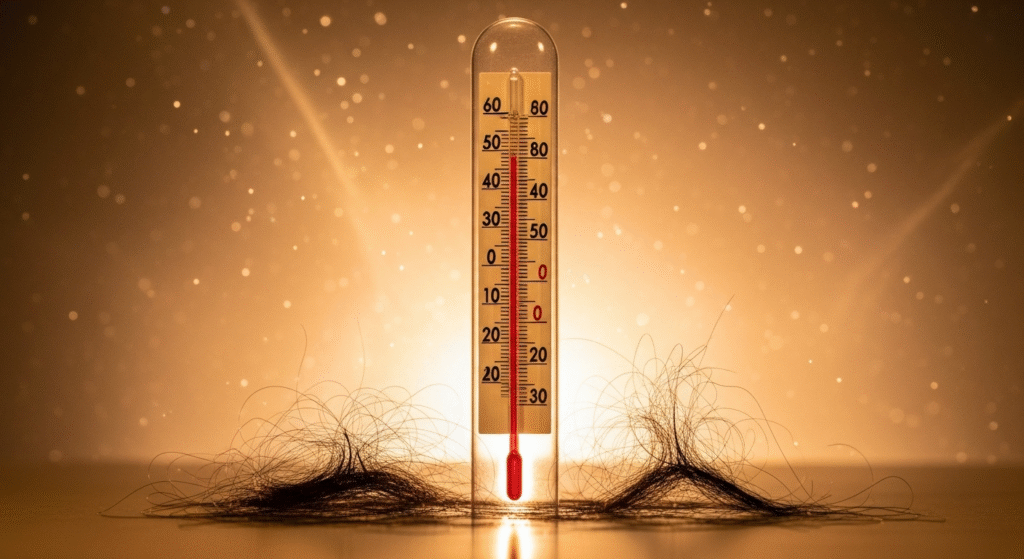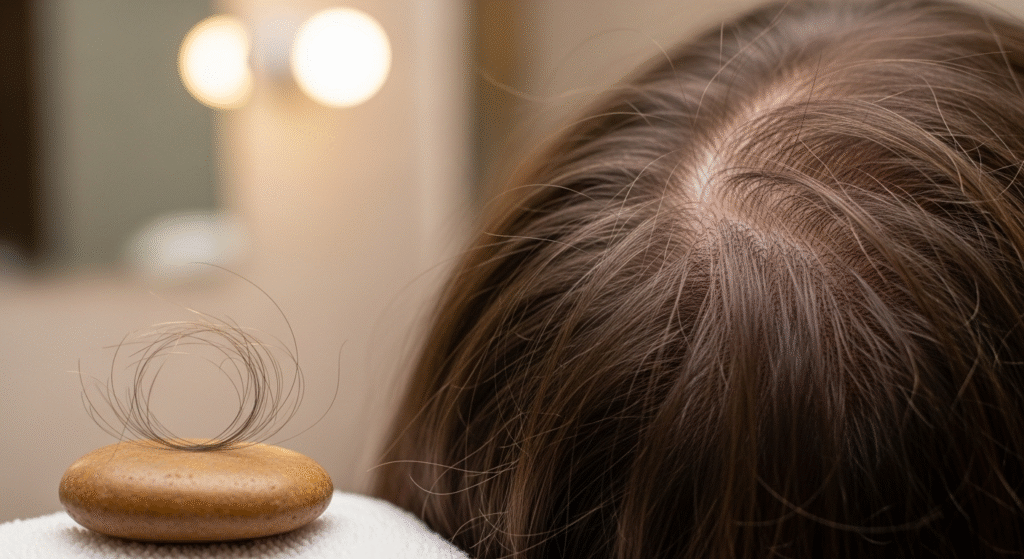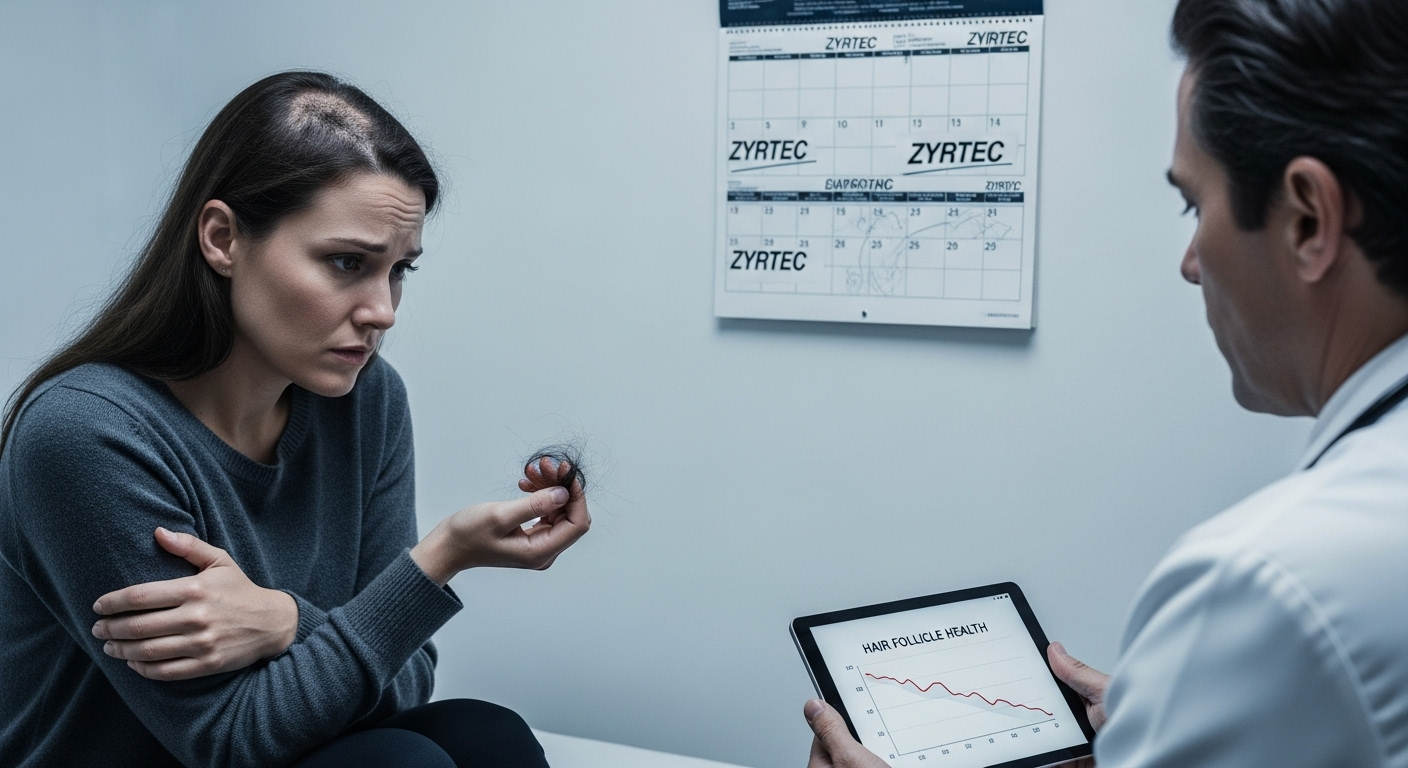Worried your favorite energy drink—even Celsius—might be behind your thinning hair? The question “does Celsius cause hair loss” is becoming increasingly common as energy drinks gain popularity worldwide. In this article, you’ll uncover what science really says, how ingredients like caffeine and biotin may affect your scalp, and practical steps to keep your hair healthy. …
Worried your favorite energy drink—even Celsius—might be behind your thinning hair? The question “does Celsius cause hair loss” is becoming increasingly common as energy drinks gain popularity worldwide.
In this article, you’ll uncover what science really says, how ingredients like caffeine and biotin may affect your scalp, and practical steps to keep your hair healthy. Backed by expert insights and real-world evidence, this guide helps you separate myths from facts and make informed choices.

Does Celsius Cause Hair Loss: What the Evidence Says
The short answer? No direct scientific evidence links Celsius to hair loss.
- Research shows no direct causation: Current studies do not identify Celsius or energy drinks as a direct trigger for hair shedding.
- Indirect pathways exist: Excessive caffeine, sugar (in some versions), and stress hormone spikes may create conditions that worsen hair thinning in vulnerable individuals.
- Individual variability: Genetics, stress, nutrition, and overall health play a much larger role in determining hair health than a single drink.
In short, Celsius isn’t a guaranteed hair-damager—but it can contribute indirectly if consumed excessively.
What’s Inside Celsius? A Breakdown of Key Ingredients
Understanding what’s inside your can of Celsius is the first step toward evaluating its potential impact on hair health.
Caffeine Content and Its Impact
- Celsius contains 200mg of caffeine per can—about two strong cups of coffee.
- Moderate caffeine may stimulate circulation, which can even support hair follicles.
- However, too much caffeine raises cortisol, a stress hormone linked with hair thinning and telogen effluvium.
Sugar Levels: Regular vs. Zero Versions
- Most Celsius drinks are sugar-free, using sucralose or stevia.
- However, sugary beverages in general have been linked to a 42% higher risk of male pattern hair loss in studies.
- Excess sugar contributes to insulin resistance, inflammation, and glycation, all of which can damage follicles.
Biotin and B-Vitamins in Celsius
- Celsius is fortified with biotin, B6, B12, and niacin.
- Biotin is often marketed as a “hair vitamin,” but the dose in Celsius is far lower than supplements.
- Pro Tip: Don’t rely on Celsius for hair nutrition—balanced meals and supplements (if prescribed) are better sources.
Other Additives and Stimulants
- Green tea extract, guarana, and taurine can increase metabolism and alertness, but little is known about long-term effects on scalp health.
- Sucralose (artificial sweetener) is considered safe, though excessive intake may disrupt gut health, which indirectly influences nutrient absorption.
How Could Celsius Potentially Affect Hair? Exploring Indirect Pathways

While there’s no direct evidence against Celsius, several indirect mechanisms could play a role in hair health:
Dehydration, Stress Response & Cortisol Spikes
- High caffeine intake can act as a diuretic, leading to mild dehydration.
- Elevated cortisol from overstimulation may trigger shedding episodes in stress-sensitive individuals.
Insulin Resistance & Hormonal Imbalance
- Studies show sugary drinks can increase DHT production, the androgen hormone most closely linked with male pattern baldness.
- Even in sugar-free versions, caffeine may still influence sleep quality, indirectly affecting hormone balance.
Glycation and Follicle Damage
- Excess sugar promotes glycation, where sugar molecules damage proteins like collagen and elastin.
- Over time, this weakens follicle support structures, making hair thinner and more fragile.
Reduced Nutrient Availability
- Relying on energy drinks for fuel can crowd out nutrient-dense foods.
- Poor sleep from overstimulation further reduces the body’s ability to repair and regenerate follicles.
Mitigating Risk — Smart Consumption & Hair-Friendly Practices
If you enjoy Celsius but worry about hair health, here are safe practices:
- Limit intake: Stick to 1 can per day maximum.
- Hydrate well: Drink 2–3 liters of water daily to counteract dehydration.
- Protect sleep: Avoid Celsius after 4 p.m. to protect your circadian rhythm.
- Boost nutrition: Prioritize protein, omega-3s, zinc, iron, and vitamin D—all critical for hair.
- Manage stress: Try meditation, scalp massage, or light exercise to offset caffeine’s cortisol effect.
- See a specialist: If shedding persists, consult a dermatologist or trichologist.
FAQs
Does Celsius directly cause hair loss?
No—there’s no clinical evidence that Celsius directly causes hair loss. Indirect risks exist if consumed excessively.
Can biotin in Celsius help hair growth?
Yes, but the amount is minimal compared to dedicated supplements. Don’t rely on Celsius for hair nutrition.
Is the caffeine in Celsius bad for hair?
Moderate caffeine may help circulation, but too much raises stress hormones that can worsen shedding.
How many Celsius cans per week are safe?
Experts recommend no more than 3–5 cans per week, depending on your tolerance.
Can quitting Celsius reverse hair thinning?
If caffeine or poor diet were contributing factors, reducing intake may help restore normal shedding cycles.
What are healthier alternatives for energy?
1: Matcha green tea
2: Black coffee (moderation)
3: Smoothies with protein & B-vitamins
4: Regular exercise and hydration
Conclusion
Celsius does not directly cause hair loss, but indirect links—through caffeine, sugar, stress, and poor lifestyle habits—can play a role in thinning hair. For most people, enjoying Celsius in moderation is unlikely to trigger baldness, especially when paired with hydration, nutrition, and stress management.
If you’re experiencing unexplained shedding, don’t self-diagnose. Professional assessment ensures you catch any underlying issues early and get personalized solutions.
Ready To Take Your Next Step
Ready to take control of your hair health? Book a consultation with Dr. Uzma Irfan, an ISHRS-certified surgeon in Islamabad today for a personalized scalp and nutrition assessment. Whether you’re concerned about energy drinks, stress, or genetics, expert guidance can help you protect and restore your hair confidently.






